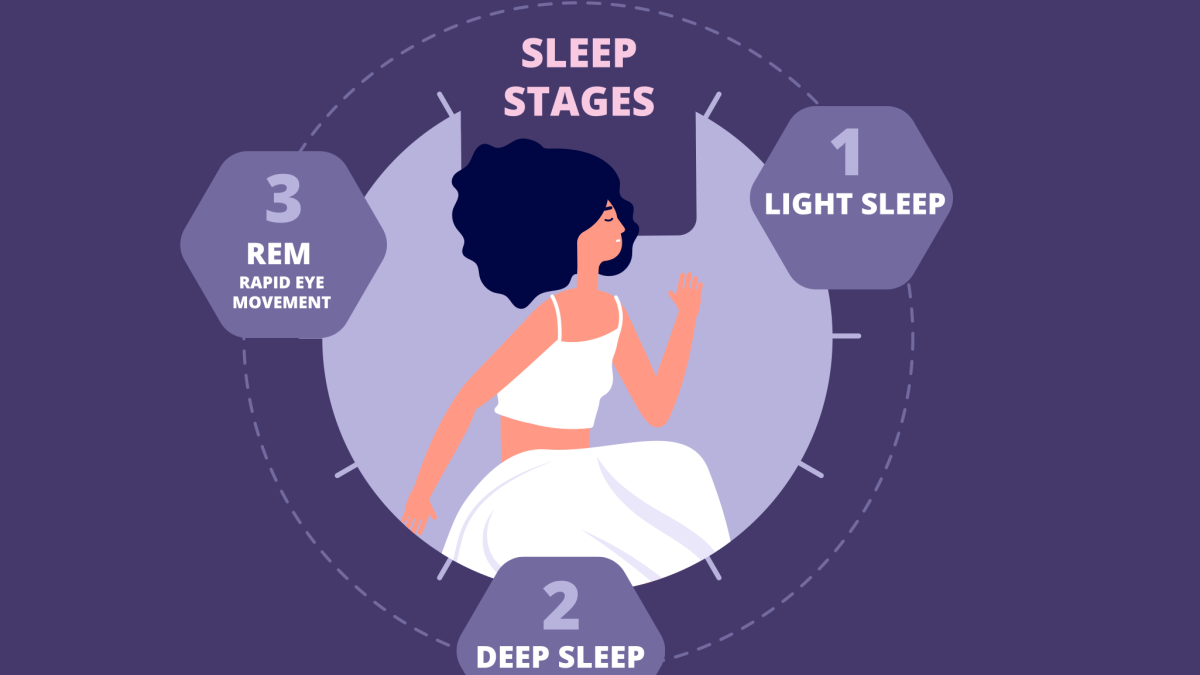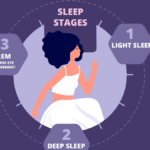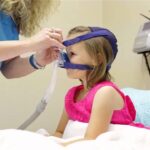Sleep apnea is a common sleep disorder that affects millions of people worldwide, including those in Melbourne. It is characterized by interrupted breathing during sleep, which can lead to various health complications if left untreated. Understanding sleep apnea, its symptoms, the importance of testing, and treatment options is essential for anyone experiencing sleep-related issues. In this article, we will delve into the science behind sleep apnea, the Melbourne sleep apnea test, and what you need to know to tackle this condition effectively.
Understanding Sleep Apnea
Sleep apnea is a breathing disorder that occurs when the muscles in the back of the throat fail to keep the airway open during sleep that require sleep study Melbourne cost. This obstruction leads to shallow breathing or pauses in breathing, resulting in multiple awakenings throughout the night. These interruptions prevent the affected individual from getting a good night’s sleep, leading to daytime fatigue, irritability, and other complications.
The Science Behind Sleep Apnea
When we sleep, the relaxation of our muscles naturally occurs. However, in individuals with sleep apnea, this relaxation causes the airway muscles to collapse, obstructing the free flow of air. This obstruction triggers the brain to briefly awaken and restore normal breathing. These awakenings often go unnoticed, but they disrupt the sleep cycle and prevent the sufferer from reaching deeper, more restorative stages of sleep.

Furthermore, the effects of sleep apnea extend beyond disrupted sleep patterns. Research suggests that sleep apnea can have a negative impact on the cardiovascular system. The repeated episodes of oxygen deprivation that occur during sleep apnea can strain the heart and increase the risk of developing high blood pressure, heart disease, and stroke. This highlights the importance of early detection and treatment of sleep apnea to mitigate potential long-term health consequences.
Additionally, sleep apnea affects the body’s oxygen levels. The repeated interruptions in breathing can lead to periodic drops in blood oxygen levels, depriving vital organs, including the brain and heart, of the oxygen they need to function optimally. This oxygen deprivation can contribute to cognitive impairment, memory problems, and even mood disorders.
See Also: The Importance of a Sleep Test and Understanding Your Sleep Patterns
Common Symptoms of Sleep Apnea
Identifying the symptoms of sleep apnea is crucial for prompt diagnosis and treatment. Some common signs include loud snoring, daytime sleepiness, morning headaches, difficulty concentrating, irritability, and restless sleep. If you experience any of these symptoms, it is important to consult a sleep specialist for further evaluation.
Moreover, it is worth noting that sleep apnea can affect individuals of all ages, including children. In children, sleep apnea can manifest differently, with symptoms such as bedwetting, poor academic performance, and behavioral issues. Recognizing these signs in children is essential for their overall well-being and development.
Furthermore, it is important to understand that sleep apnea is not solely a disorder affecting overweight or older individuals. While obesity and age can be risk factors, sleep apnea can also affect individuals who are of normal weight and younger. Therefore, it is crucial to raise awareness about sleep apnea and its potential impact on various populations.
The Importance of Sleep Apnea Testing
Getting tested for sleep apnea is vital for accurate diagnosis and effective treatment. Untreated sleep apnea can lead to various health risks and diminish overall quality of life. Understanding these risks and the benefits of early detection is crucial.
When it comes to sleep apnea, the impact of this condition goes beyond just feeling tired during the day. Untreated sleep apnea can have serious consequences on your physical health, mental well-being, and overall quality of life. It is essential to recognize the signs and symptoms of sleep apnea and seek proper testing to address this condition effectively.
Health Risks Associated with Untreated Sleep Apnea
Untreated sleep apnea can significantly increase the risk of developing serious health conditions, such as high blood pressure, heart disease, stroke, diabetes, and obesity. The ongoing oxygen deprivation due to interrupted breathing places a strain on the cardiovascular system and can lead to chronic health issues if left unaddressed.
Moreover, untreated sleep apnea can also impact cognitive function, memory retention, and mood stability. The disruptions in sleep patterns caused by untreated sleep apnea can result in irritability, difficulty concentrating, and even depression. By addressing sleep apnea through proper testing and treatment, individuals can not only improve their physical health but also enhance their mental and emotional well-being.

Benefits of Early Detection and Treatment
Fortunately, with early detection and treatment, sleep apnea can be effectively managed, reducing the risk of associated health problems. Timely treatment can lead to improvements in daytime alertness, overall well-being, and the quality of sleep.
Additionally, addressing sleep apnea can have a positive impact on other areas of health, such as weight management and cardiovascular health. By improving sleep quality and ensuring proper oxygen intake during the night, individuals with sleep apnea can experience enhanced energy levels, better concentration, and a reduced risk of developing complications related to untreated sleep apnea.
Overview of the Melbourne Sleep Apnea Test
The Melbourne sleep apnea test is a diagnostic tool used to assess the severity of sleep apnea and determine the most appropriate treatment plan. Understanding what to expect during the test and how to interpret the results is essential.
When undergoing the Melbourne sleep apnea test, it is crucial to prepare for an overnight stay at a specialized sleep center. The environment is designed to be conducive to sleep while allowing for the monitoring of various physiological parameters. The technicians will ensure that the sensors are comfortably placed on different parts of your body to collect data throughout the night.
What to Expect During the Test
The sleep apnea test, also known as a polysomnogram, typically takes place overnight in a specialized sleep center. During the test, sensors are placed on various parts of the body to monitor brain activity, eye movements, heart rate, breathing patterns, and oxygen levels. This comprehensive evaluation provides valuable data that aids in diagnosing sleep apnea.
Furthermore, the sleep center staff will be available to address any concerns or questions you may have during the test. They are trained to ensure your comfort and safety throughout the monitoring process, allowing for accurate and reliable results to be obtained.
Interpreting Your Test Results
After the test, a sleep specialist will analyze the data collected and provide a thorough evaluation of the results. This evaluation helps determine the severity of sleep apnea and guides the selection of the most appropriate treatment options. Understanding your test results is key to addressing sleep apnea effectively.
It is important to schedule a follow-up appointment with your healthcare provider to discuss the results in detail. They will explain the findings, answer any questions you may have, and work with you to develop a personalized treatment plan tailored to your specific needs. By actively participating in the interpretation of your test results, you can play an integral role in managing your sleep apnea and improving your overall quality of life.
Preparing for Your Sleep Apnea Test
Preparing for the sleep apnea test is crucial to ensure accurate results. Taking certain precautions and being well-informed before your scheduled test can help make the process smoother.
Understanding the significance of the sleep apnea test is essential. Sleep apnea is a common sleep disorder characterized by pauses in breathing or shallow breaths during sleep. If left untreated, it can lead to serious health issues such as high blood pressure, heart disease, and stroke. By undergoing this test, healthcare professionals can accurately diagnose and recommend appropriate treatment for your condition.
Tips for the Night Before Your Test
Prior to the test, it is important to maintain a regular sleep schedule, avoid excessive caffeine or alcohol consumption, and refrain from taking naps during the day. Creating a calm and relaxing sleep environment can also contribute to better sleep quality during the test.
Additionally, it may be beneficial to engage in relaxation techniques such as deep breathing exercises or meditation to help calm your mind and body before bedtime. Ensuring your bedroom is dark, quiet, and at a comfortable temperature can further enhance your chances of getting a good night’s rest.
What to Bring to Your Test
When attending your sleep apnea test, it is essential to bring comfortable sleepwear, personal hygiene items, and any necessary medications. Following the instructions provided by the sleep center and ensuring you have all the required items will help streamline the testing process.
It is also advisable to bring any items that help you relax or fall asleep more easily, such as a favorite pillow, blanket, or sleep mask. Familiarity and comfort can play a significant role in helping you feel more at ease during the test, potentially leading to more accurate results.

Treatment Options Post-Test
Once your sleep apnea is diagnosed, various treatment options can help manage the condition effectively. Combining lifestyle changes with medical treatments and devices offers a comprehensive approach.
It is essential to recognize that managing sleep apnea is a multifaceted process that may require a combination of approaches tailored to individual needs. In addition to lifestyle changes and medical interventions, alternative therapies such as acupuncture, positional therapy, and oropharyngeal exercises have shown promise in improving sleep apnea symptoms. These complementary options can be explored in conjunction with traditional treatments to enhance overall efficacy.
Lifestyle Changes for Managing Sleep Apnea
Implementing lifestyle modifications is often the first line of defense in managing sleep apnea. These changes can include weight loss, regular exercise, avoiding smoking and alcohol, and establishing good sleep hygiene. Making these adjustments can significantly improve symptoms and overall sleep quality.
Furthermore, incorporating relaxation techniques such as yoga, meditation, and deep breathing exercises into daily routines can help reduce stress levels and promote better sleep patterns. Stress management plays a crucial role in managing sleep apnea, as high stress levels can exacerbate symptoms and disrupt sleep continuity.
Medical Treatments and Devices for Sleep Apnea
In cases where lifestyle changes alone are insufficient, medical treatments and devices may be recommended. Continuous Positive Airway Pressure (CPAP) therapy, oral appliances, and surgical interventions are among the options available to address sleep apnea effectively. Working closely with healthcare professionals will help determine the most suitable treatment path for each individual’s specific needs.
Moreover, ongoing monitoring and adjustments to treatment plans are essential to ensure optimal outcomes in managing sleep apnea. Regular follow-ups with healthcare providers allow for the evaluation of treatment effectiveness and the identification of any necessary modifications to enhance therapeutic benefits.
Overall, understanding sleep apnea, undergoing proper testing, and considering various treatment options are vital for effectively managing this condition. With the right knowledge and support, individuals in Melbourne and beyond can take control of their sleep health and enjoy improved overall well-being.




